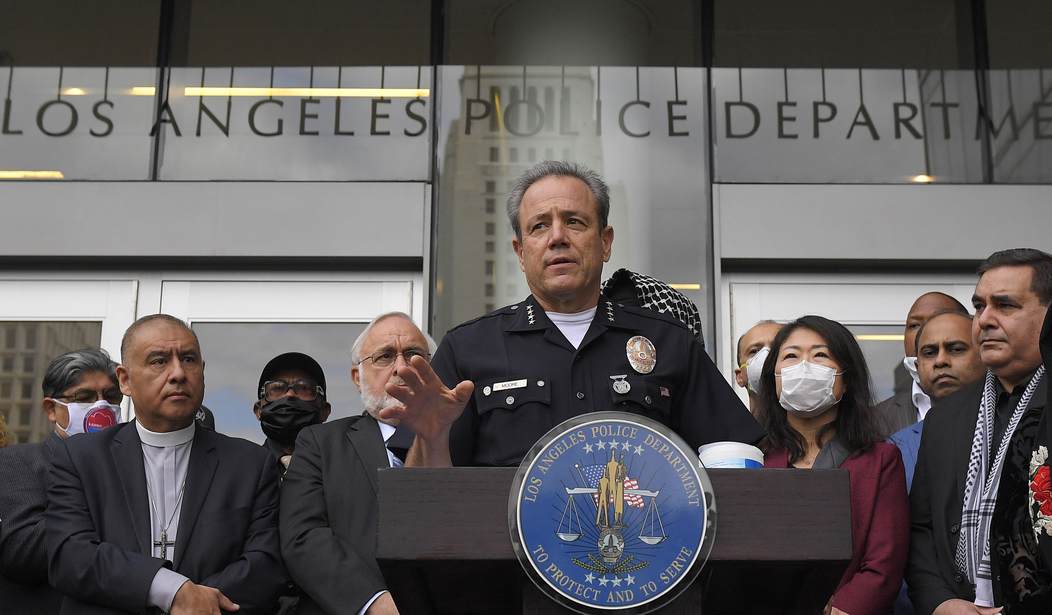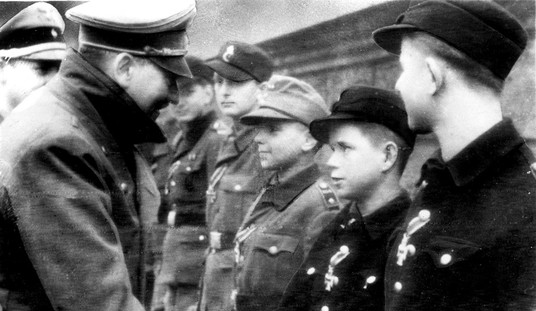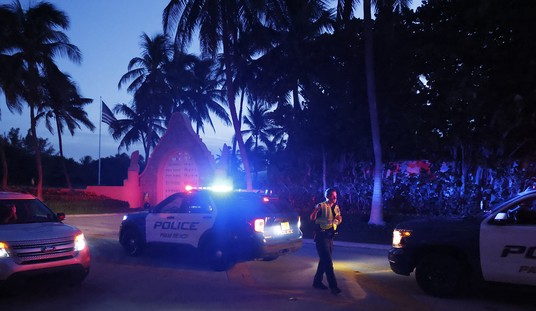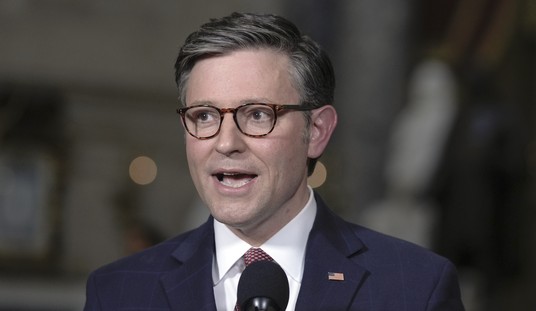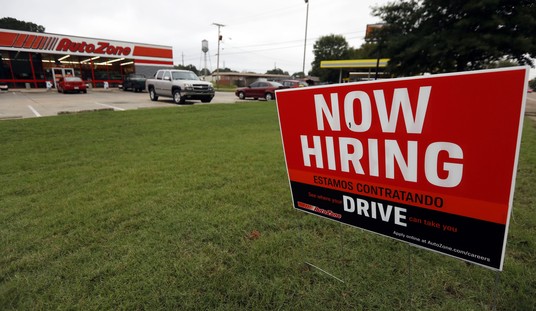The opinions expressed by contributors are their own and do not necessarily represent the views of RedState.com.
The Los Angeles Police Department (LAPD) is considering a policy that might actually have a benefit from a liberty perspective. As law enforcement agencies across the country are experiencing shortages of officers and personnel, some have had to make some difficult decisions on how to do their jobs.
It has become a pressing issue amid heightened crime rates. Residents in major cities are bearing the brunt of the impact of increased criminal activity and police departments are struggling to keep up.
The Associated Press reported:
The Los Angeles Police Department’s rank-and-file union is proposing that someone other than police respond to more than two dozen types of 911 calls in a bid to transfer officers’ workload to more serious crimes. The move is part of a national trend aimed at limiting situations where armed police officers are the first to respond.
The proposal announced Wednesday by the Los Angeles Police Protective League lists 28 kinds of 911 calls where other city agencies or nonprofit organizations would be sent first. The calls range from mental health situations, quality-of-life and homeless issues, problems at schools and welfare checks, to certain non-fatal traffic collisions, parking violations, trash dumping, loud parties, public intoxication and panhandling.
The union suggested that armed officers would respond “if the situation becomes violent or criminal in nature, but only after the initial call goes to another agency or an affiliated nonprofit,” according to the AP.
“Police officers are not psychologists. We are not psychiatrists. We are not mental health experts. We are not social workers, doctors, nurses or waste management experts,” said Debbie Thomas, one of the union’s directors, said during a Wednesday news conference. “I do believe that many people think we should be all those things but we are not. We should be focused on responding to emergencies, saving lives (and) property, and of course, engaging in community policing.”
Police Chief Michael Moore supported the idea, which he described as “an alternative non-law enforcement service response to non-emergency calls.”
Moore also indicated that his department has established a support network of alternatives to having police show up for nonviolent situations that don’t involve criminal activity. “These emerging alternatives have already diverted thousands of calls away from a police response, allowing officers to time to focus on our most essential activities,” Moore said in a written statement.
According to a document released by the LAPD, the agency noted that the department “continues to suffer from long-term chronic understaffing, which leads to delayed emergency response times, increased neighborhood crime, diminished community policing, lower crime clearance rate, as well as the erosion of officer morale.”
The document acknowledges that “many residents and the Union agree that certain types of calls for service may not necessitate an armed response.”
As a result, the department and union are considering pulling armed officers off of certain types of 911 calls. Some of these include “[n]on-criminal and/or non-violent homeless and quality of life related calls,” “non-criminal mental health calls,” “non-violent calls for service at City parks,” “parking violations,” “non-fatal vehicle accidents,” “landlord/tenant disputes,” and others.
To me, this sounds like a good idea, even if the LAPD isn’t struggling from an officer shortage. According to the data, communities might be better served if police were able to focus on actual violent crimes rather than responding to calls on smaller matters – especially those that do not involve the threat of violent behavior.
The Vera Institute of Justice published the results of a study last year that analyzed 911 data from various major cities including Baltimore, MD, Burlington, VT, Cincinnati, OH, Detroit, MI, Hartford, CT, New Orleans, LA, New York, NY, Seattle, WA, and Tucson, AZ. Researchers found that “the vast majority of 911 calls do not involve crimes or violence.” Indeed, in most of the cities analyzed, “fewer than 3 percent of calls were for situations involving a violent crime,” which would mean other first responders or professionals might be better suited for handling these situations.
Researchers pointed out that “[c]alls involving violent crimes in progress warrant urgent responses from police, but 911 data reveals that these situations comprise relatively small percentages of overall call volume.”
The report recommends that instead of using armed police officers, “jurisdictions should dispatch civilian responders to a range of calls to better align responses with the unmet needs of callers and reduce reliance on police.”
I have often wondered if it makes sense to use armed police officers to respond to every little 911 call. According to the data, the answer is “no.” Having other people handle these matters will free up police officers to investigate and respond to crimes that actually involve violations of natural rights and lessen the likelihood of unnecessary fatal encounters.
However, this does not mean I agree with each of the categories the union lists in its document. For example, I think it would be wise to have an officer accompany mental health professionals when they are dealing with mental health crises to ensure safety. This should also be the case when dealing with possibly mentally ill homeless people loitering in areas where they are not allowed to be.
Of course, decriminalizing a lot of the behaviors that have been made illegal would also alleviate the work of officers, whose sole duties should be protecting our natural rights, not throwing people in cages for consuming substances. But that’s a different conversation for a different day. This approach may not fully address the problem of violent crime in major cities, but it could be a step in the right direction.

